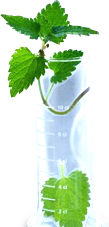



Author(s): Ashwini C.S.1*, Pramod H.J. 1, Abhishek Kumar Rai2, Geet.P. Asnani3, M. B. Patil
Rotula aquatica (Lour.) family-Boraginaceae roots are used for the treatment of diabetes traditionally. The aim of the present study was undertaken to investigate the hypoglycaemic and antidiabetic effect of single and repeated oral administration of the aqueous extract in normal and streptozotocin induced diabetic rats respectively, serum lipid profile was also examined. The dose of 200, 300 and 500 mg/kg body weight p.o. of the aqueous extract were evaluated and the dose of 200 mg/kg was identified as the most effective which reduced blood glucose level upto 40.6% after 4 hr of administration in normal rats and a fall of 38% in blood glucose level within 1 hr during glucose tolerance test (GTT) in mild diabetic rats which has almost similar effect as that of standard drug glibenclamide (3 mg/kg bw). Severe diabetic rats were treated daily with 200 mg/kg bw for 14 days and a significant reduction of 56% was observed in fasting blood glucose level respectively, urine sugar level was decreasing with increasing in body weight and total cholesterol (TC), low density lipoprotein (LDL), triglyceride (TG) levels were decreased by 24, 59 and 41% respectively, in severely diabetic rats whereas, cardioprotective, high density lipoprotein (HDL) was increased by 26%. The data showed that aqueous extract has a remarkable hypoglycaemic, antidiabetic and hypolipidemic effect